First Symptoms
The first indication that something might be wrong was when Georgina seemed tired and grouchy, and just not her usual self. She was given antibiotics for an ear infection and when she also started being sick on waking, Georgina’s Mum, Issy, thought they might be the cause. But the sickness symptoms continued after the antibiotics were stopped and Georgina still seemed tired and angry when she wasn’t being held.
Issy took her back to the GP who thought a virus, or a urinary tract infection might be to blame. But after five more days of sickness and sleepiness in the morning, Issy was sure things weren’t right. After another visit to the GP, Georgina was referred to hospital. They had no major concerns and suggested a return visit the following week, but Issy insisted she should be seen in the morning, as that was when her symptoms were most obvious. By this time Georgina had started being sick in the middle of the night, too.
Issy’s persistence paid off. An MRI was carried out the next day. Even though they knew Georgina wasn’t well, the results turned her family’s world upside down.
Issy said: “The scan found ‘a significant cancerous mass on her brain’ and Georgina was blue lighted to Leeds General Infirmary. Here her SATS showed that the tumour was cutting off her brain from her body. A further MRI was carried out the next day – during which we had to give permission for a cyst to be drained inside the tumour to relieve the pressure, or she would die.”
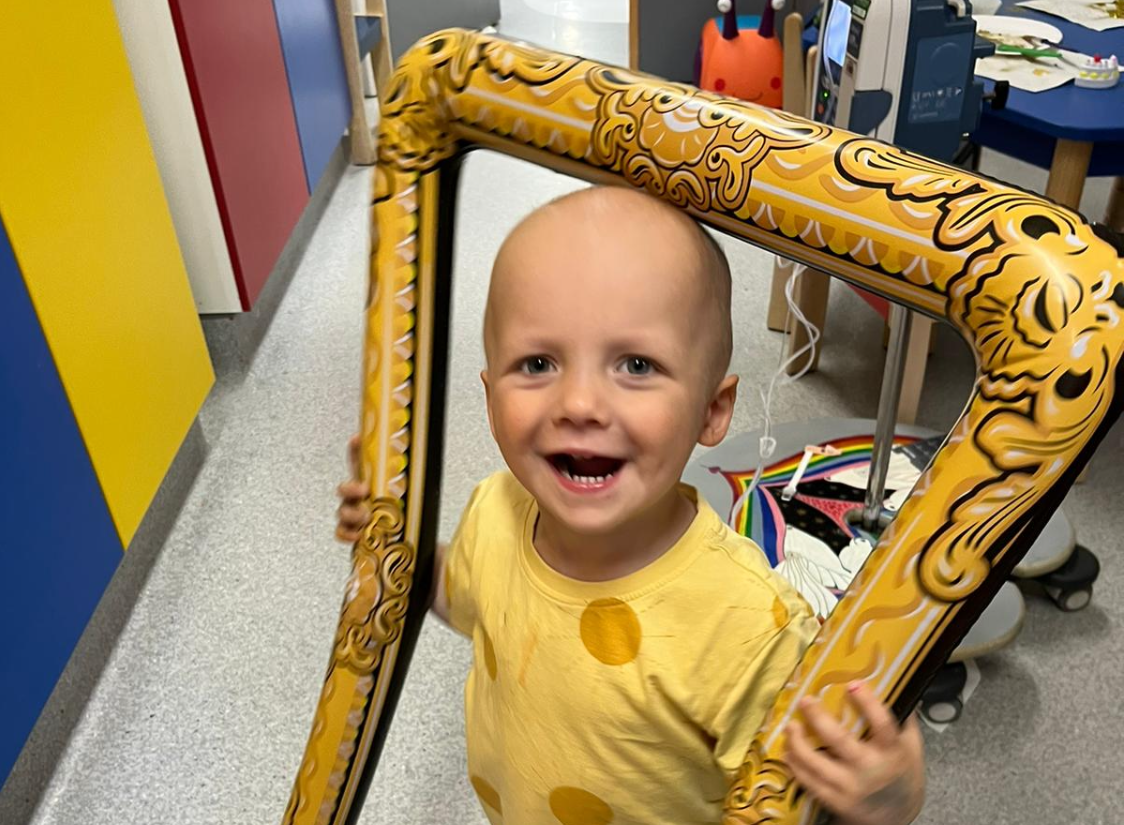
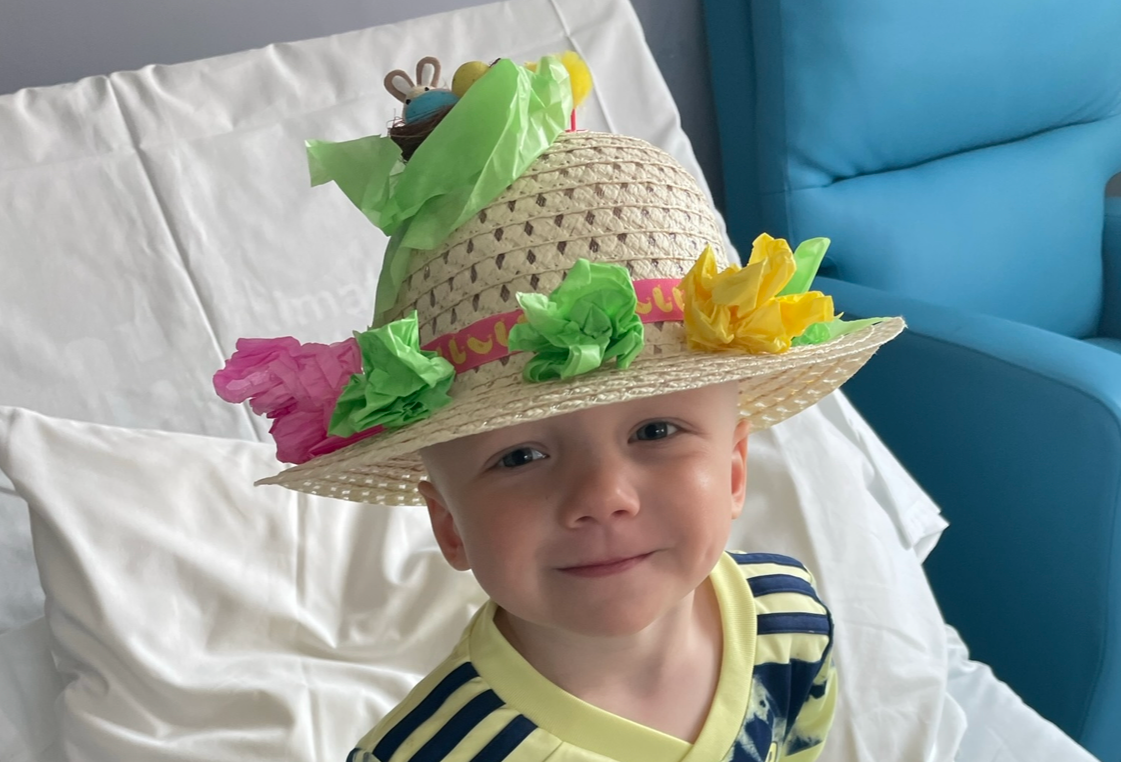
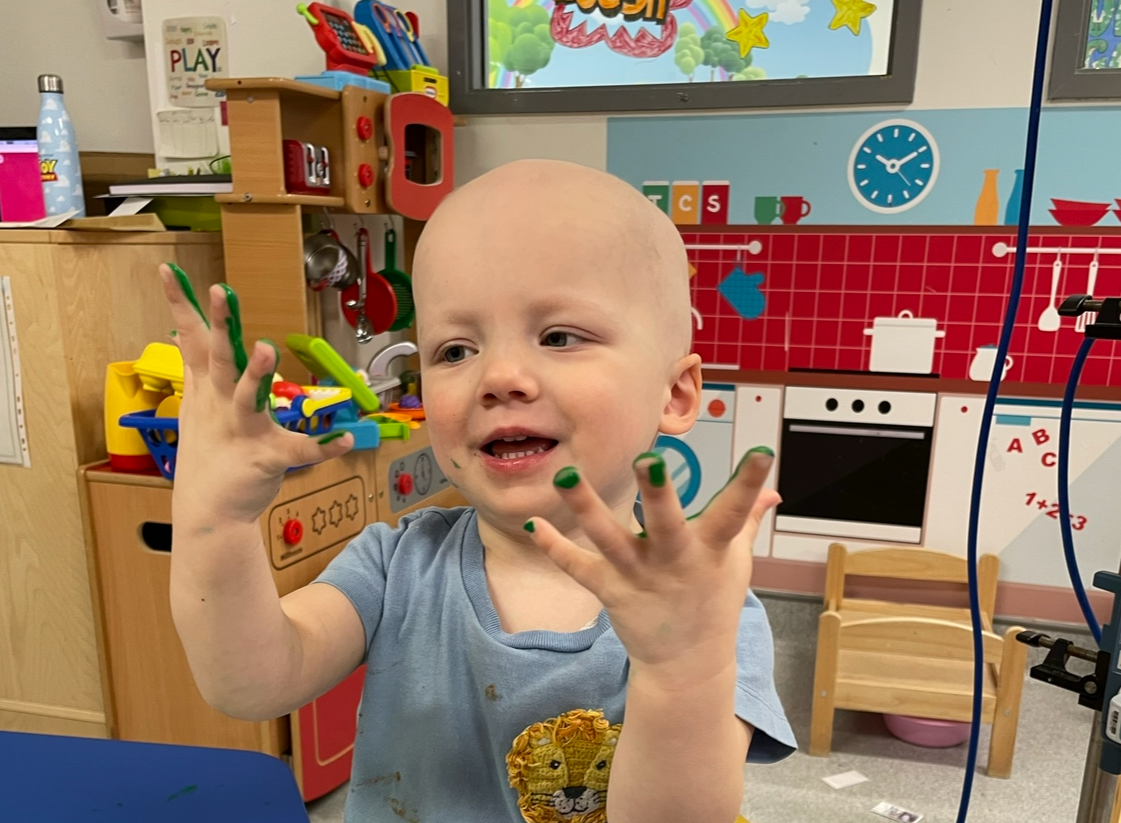
Surgery and Treatment
The next day, the tumour was taken out completely. Tests revealed it to be a supratentorial ependymoma. After surgery, the treatment plan for Georgina was a gruelling 56 weeks of high dose chemotherapy, in seven cycles over eight weeks. Despite her young age, she coped with this well.
Issy explained: “She has been absolutely amazing throughout the whole process, we have had some bad weeks where she has been sick a lot but we have been very pleasantly surprised at how well she has handled the whole thing. I think because she is so young and doesn’t realise she is poorly, she just gets on with it!”
But such a vigorous programme of treatment has meant that certain things for Georgina – like going to nursery – have had to be put on hold.
“Georgina never started nursery at two as she has spent every other week in hospital for over a year. We have had to be really careful where to go, no soft play centres or anywhere busy and be really hard on people coming in and out of the house – everyone knows to wash their hands on the way in! The brain tumour was in the occipital lobe of her brain meaning that when it was taken out, the fibres to the left peripheral of both eyes were cut. The effects of this will become a bit clearer as she gets older but at the moment its difficult in places she doesn’t know as she walks into things and people.”
Fundraising to help other families
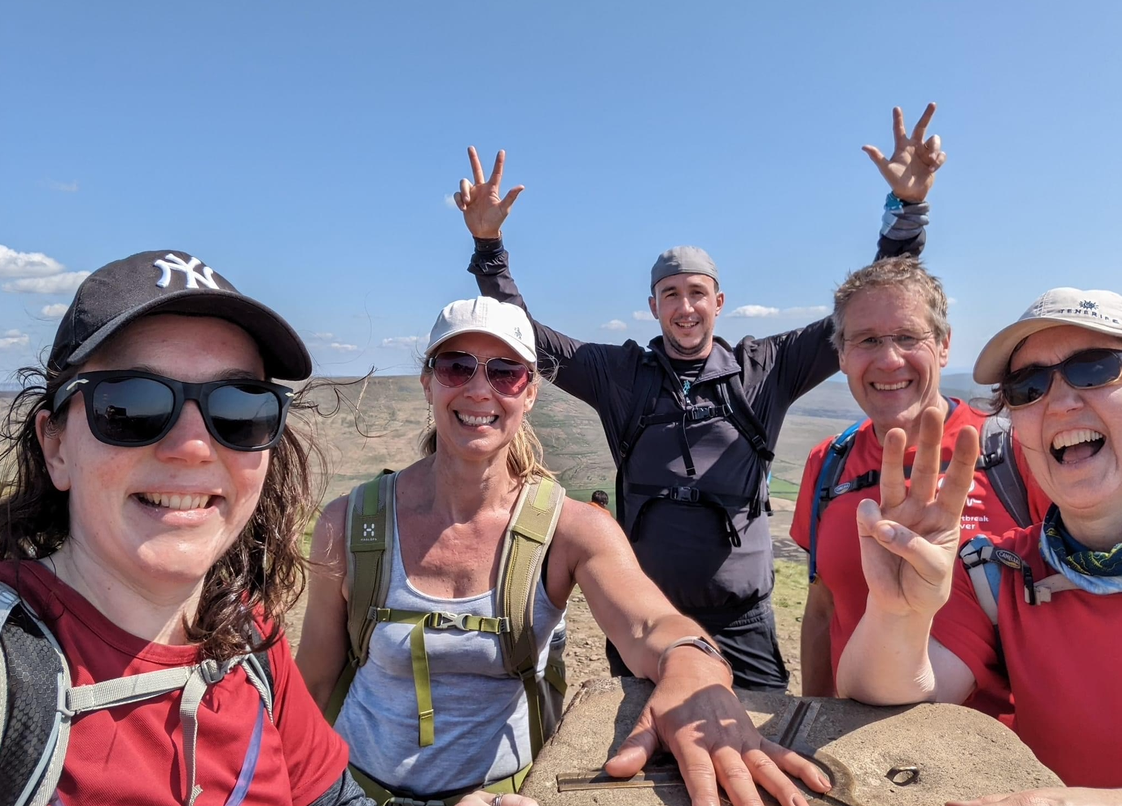
Issy set out to raise funds and awareness throughout the entire year of Georgina’s chemotherapy treatment – and friends and family rose to the challenge by taking on various fundraising events. A large group did The Yorkshire Three Peaks in May. There have also been sponsored runs, including a team at the famous Knaresborough Bed Race, and a Wellness Retreat this autumn. The family has raised a remarkable £18,000 so far.
Issy said: “Without the funding for research and awareness of brain tumours then our little girl would not be alive. We heard about the Brain Tumour Charity through a relative who fundraises for the charity too. We wanted to do our bit to help other families.
“It’s been a tough year in many ways and has really shown who your friends are, the people who are prepared to be around, and the value of communities. When we did the Yorkshire Three Peaks there were 58 people who came along, even some students that I had taught, football friends, work colleagues, running community friends, school friends. Causes like this are literally the power of the people! It is very heartwarming to know that people are there and want to support your cause.”
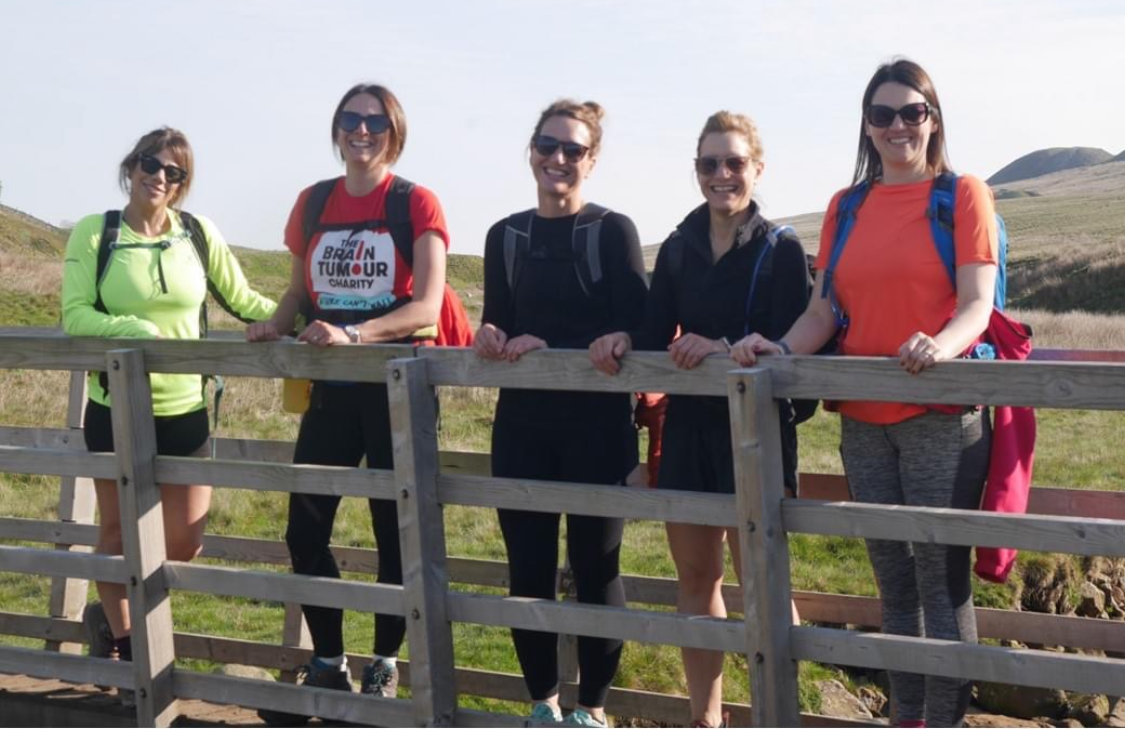
Highlighting signs and symptoms
Georgina’s family are no strangers to brain tumours. Her Dad’s cousin sadly died of an undiagnosed brain tumour, aged just 16. His family set up one of our first Supporter Groups – find out more about them here.
Issy explains: “There was no awareness at the time and his constant headaches over months were eventually put down to psychosis. His Dad went on to raise both awareness and a massive amount of money – over £125,000. I truly believe that this has contributed to lives being saved through more knowledge of the symptoms.
“The right people at the right time saved our little girls’ life. If I had listened to the hospital consultant who suggested we went back six days later, Georgina would not be with us.
“It is such a shame that the only way you can find a brain tumour is through an MRI scan, and that normally this is when the symptoms are causing massive problems for the child. It would be great if there were other ways to diagnose brain tumours.”
Find out more about signs and symptoms in all age groups at Better Safe Than Tumour.
Advice to families dealing with their child’s diagnosis
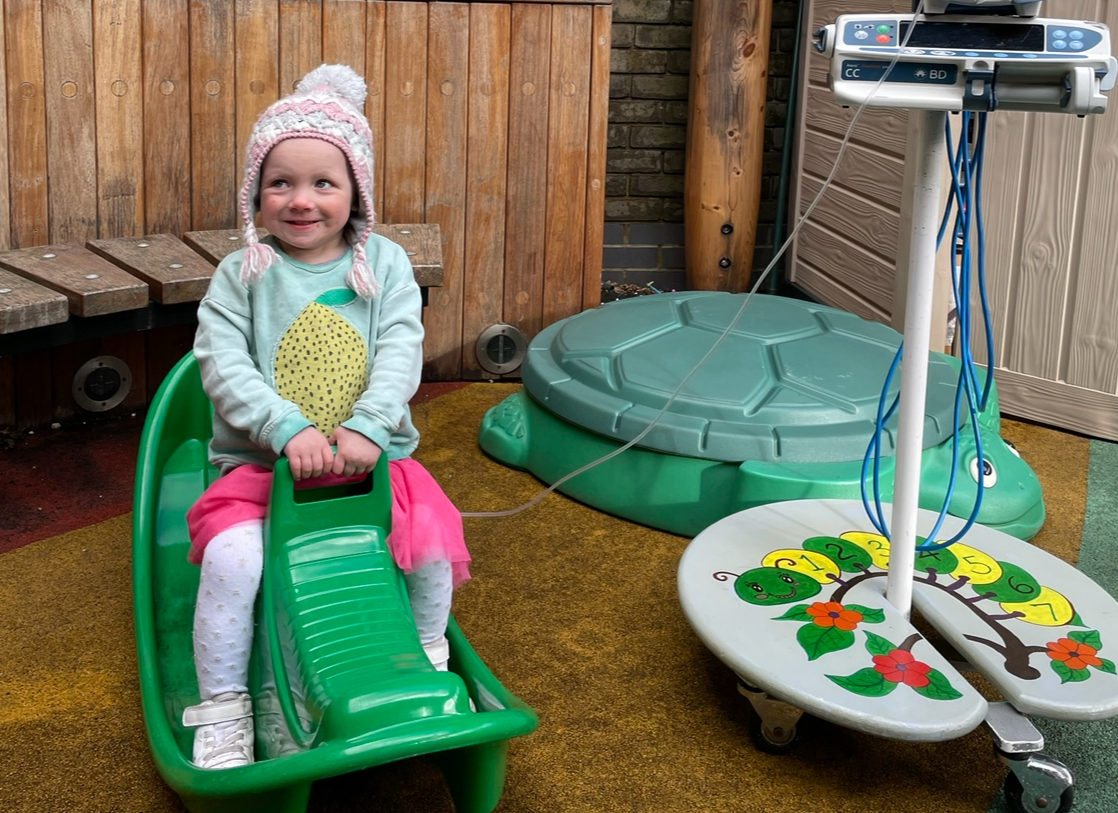
Happily, Georgina has just finished treatment after a tough year – a momentous occasion for her family.
Issy said: “Every single child is different and responds to treatment, surgery and hospital life differently, as do every family. I don’t think anyone ever goes through the same experience, the tumours seem so rare and personalised to each child. You may find another child with the same named tumour but it is in a different place, affecting them completely differently.
“Listen to the professionals, don’t google anything, and take your child as a unique individual who is going on a journey that they will respond to in their own way, in their own time and with a smile on their face. Because, yes, your child may have cancer but it doesn’t define who they are.”
